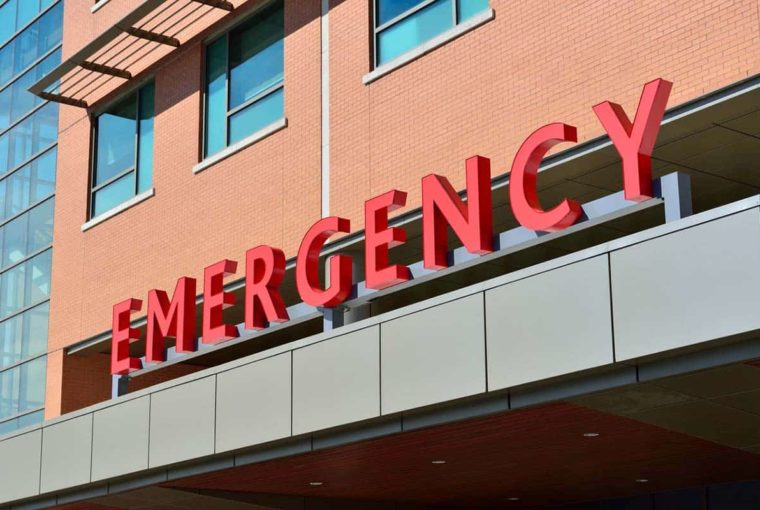Where do you go if you got into an accident? Do you go to the emergency room or an urgent care facility? In this article, you’re going to know more about urgent care. You’ll also know when to use this emergency service as you dive deeper into this topic.
Urgent Care: A Brief Overview
Note that urgent care and emergency care are different. The former is an option when you need help urgently. However, urgent care facilities might be a better option for non-life-threatening emergencies. Moreover, urgent care centers may have emergency rooms, albeit the equipment might not be as extensive as those found in dedicated emergency facilities in hospitals.
Note that urgent care is a specialized clinic focusing on patients who urgently require medical attention. Urgent care tends to be in a particular category of specialized walk-in clinics dedicated to delivering specialty medical care in an ambulatory setting outside a regular emergency room. Patients who go to an urgent care unit may need admissions for a limited time, but the center may quickly discharge patients upon the medical aid’s completion.
Additionally, urgent care may provide different services than traditional medical centers. Many people tend to use services from conventional health facilities for routine checkups and minor treatments. But, seriously ill patients might perform immediate operations to patients in dire need of emergency treatment in an urgent care center.
Here’s a quick look at some instances when you may need the emergency room more than an urgent care facility:
- Chest pain
- Breathing difficulties
- Slurred speech
- Concussion
- Fainting
- Broken bones
- Seizures
When To Use Urgent Care
Various urgent care units may specialize in providing immediate health and medical attention to patients experiencing non-life-threatening concerns. Patients may also use interactive medical apps from their mobile devices to help solve immediate concerns without the need to travel. Still, some instances may require hands-on professional help than reading tips from apps.
The following are some of the many instances that you may prefer to go to an urgent care unit than the emergency room:
Sprains and fractures
A sprain is a torn or stretched out ligament or tendon. On the other hand, a fracture tends to be a broken bone. Some sprains and fractures might not severely affect a patient’s life. Hence, urgent care services might suffice for these medical emergencies. Medical experts in these units may provide sprain and fracture treatments, such as giving cold compresses, elevating the injured body part, and administering minor operations.
Mild to moderate respiratory problems
Patients who may have difficulty in breathing, but can still move around without additional supervision may consider urgent care services.
Some examples of mild to moderate respiratory problems are acute pneumonia, influenza, bronchitis, and allergic rhinitis. Urgent care units may provide testing and medications to individuals experiencing these ailments as these health concerns may not require deliverance to emergency rooms.
In particular, acute pneumonia may often come with a slight cough and fever. Urgent care experts may require the patient to undergo chest x-rays, which might also be within the facility’s walls. The medical professionals may, then, provide recommendations for prescription medicines.
Testing and imaging
Some urgent care facilities have testing and imaging equipment. Consider searching centers with these pieces of equipment if you need test results without going to third-party laboratories.
Note that each facility may have different testing equipment than others. But, you may see the following testing services in various centers:
- Phlebotomy or blood tests
- Point of care testing
- Specialty exam services (e.g., youth sports pre-participation exam and workers’ compensation injury evaluation)
- Imaging (e.g., chest x-rays, extremity x-rays, and electrocardiograms or ECGs)
Certain facilities may also provide testing for sexually transmitted diseases (STDs). Patients seeking STD test results may search for centers that provide information security and discreet testing.
Persistent diarrhea
Some diarrhea conditions may not be life-threatening, but still require immediate medical attention. Consider the following diarrhea symptoms to see if you need urgent care aid:
- Black, tar-like stool
- Blood or pus in excrements
- High fever
- Persistent abdominal pain
Additionally, consider using urgent healthcare services if diarrhea lasts over two days. Medical professionals in these facilities may administer treatment to prevent dehydration as it tends to be a common diarrhea symptom.
Still, consider not thinking twice about using urgent medical care services if diarrhea persists over 24 hours. Contact a reliable urgent healthcare unit if the symptoms affiliated with this illness don’t go away after a day. Otherwise, these symptoms may worsen, which might increase the risks of additional health concerns.
The Bottom Line
Urgent care facilities aim to administer immediate treatment for certain health issues. Patients experiencing concerns like sprains, fractures, diarrhea, and mild to moderate respiratory problems may take advantage of these services. However, don’t confuse the need for urgent care and emergency care, as some medical emergencies may require the latter option than the former.




